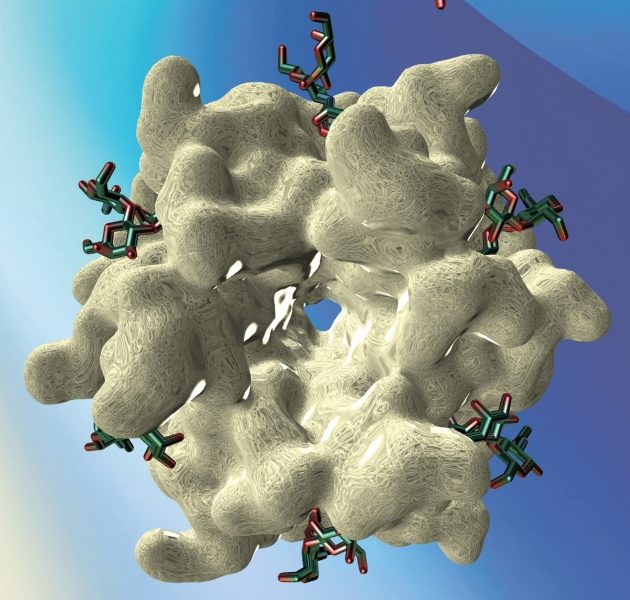
Synthetic Glycobiology can be defined as re-engineering carbohydrates, carbohydrate-active enzymes and carbohydrate-binding proteins for new and useful purposes. The term probably first appeared in an article by Czlapinski & Bertozzi in 2006. Our own vision of Synthetic Glycobiology has developed from a recent ERASynBio network SynGlycTis and has been the subject of a Royal Society conference organised by members of the synBIOcarb team, which led to a special issue of the journal Interface Focus and a Royal Society Publishing blog interview with synBIOcarb coordinator Bruce Turnbull.
The Importance of Glycobiology
Every living cell is covered in a coating of complex carbohydrates known as the glycocalyx. Anything that approaches the cell membrane must descend through this forest of carbohydrates; therefore interactions between carbohydrates and lectins (carbohydrate-binding proteins) play essential roles in cell adhesion and endocytosis. For example, initial binding of a sperm to an egg involves a lectin on the head of the sperm binding to a specific glycan on the egg. However, many parasites, viruses, bacteria and their toxins also exploit these mechanisms to colonise tissues and enter cells. Understanding such processes can lead to new methods to diagnose and treat infectious diseases. The composition of a cell’s glycocalyx is dynamic, and changes when cells become cancerous. There are many carbohydrate structures that are over-expressed, or uniquely expressed, on cancer cells, making them cancer biomarkers that can be exploited for diagnosis, or targeted immunotherapies/drug delivery. Many of the top selling drugs are glycoproteins and the structures of the attached glycans are crucial to their biological activity; therefore, it is essential to monitor glycosylation during biopharmaceutical manufacturing for quality control and regulatory approval.
Our growing understanding of glycoscience, and the advent of chemical and synthetic biology methodologies, presents an opportunity to redesign, synthesise and exploit glycocalyx and lectin components for diverse analytical, diagnostic and targeted therapeutic applications:
This is the field of Synthetic Glycobiology.
